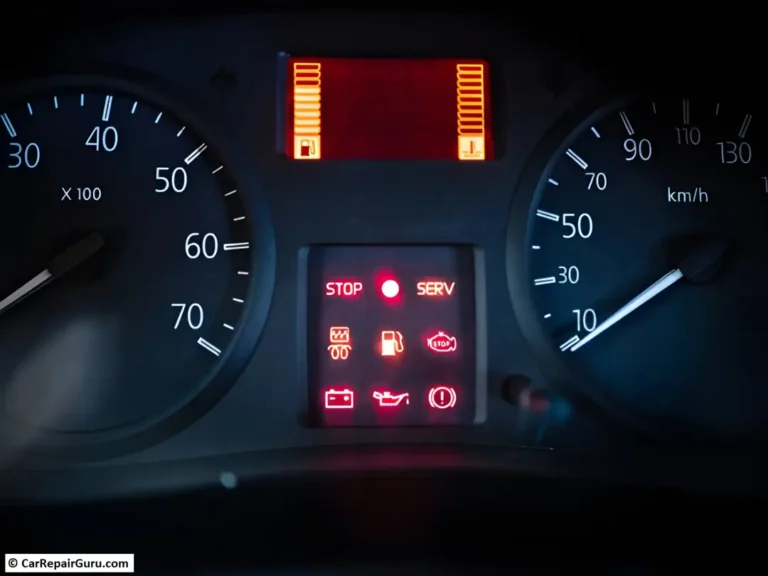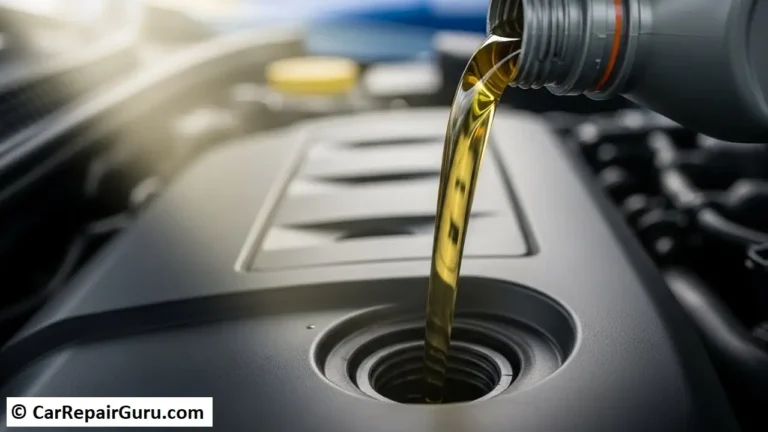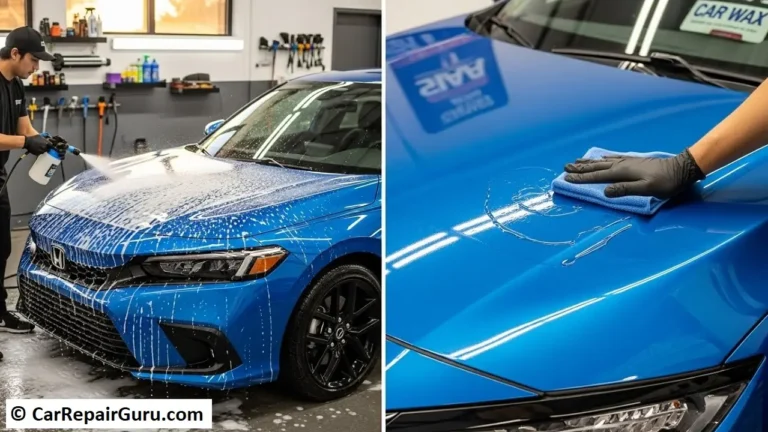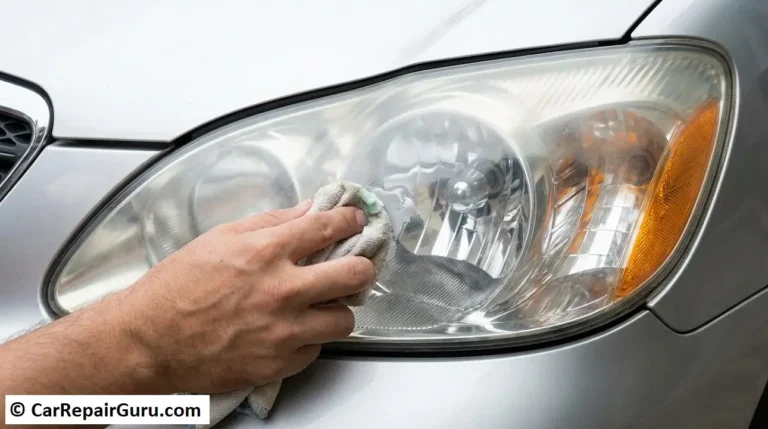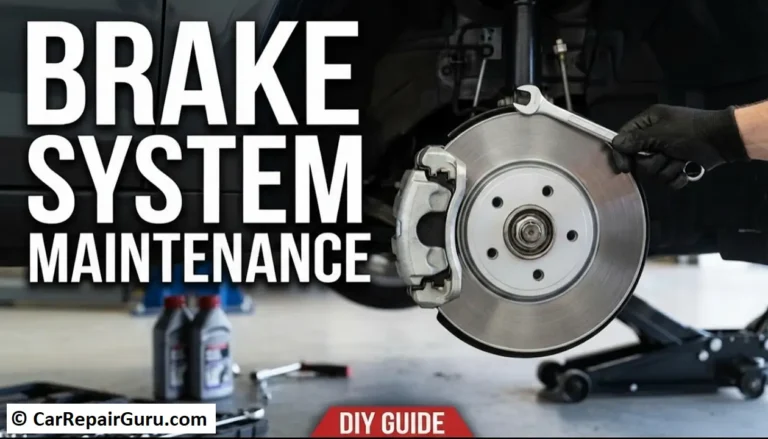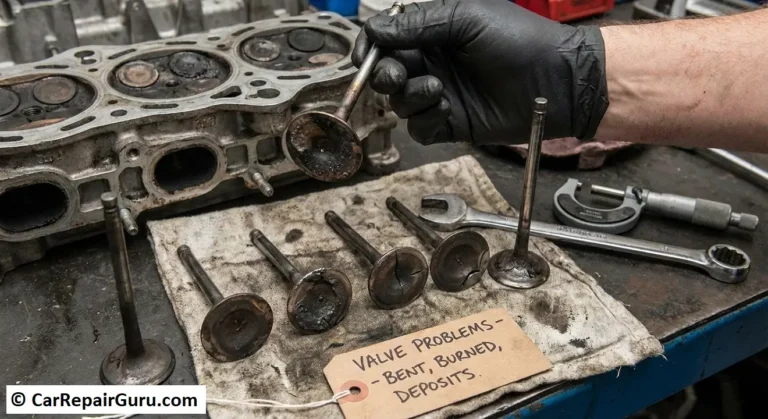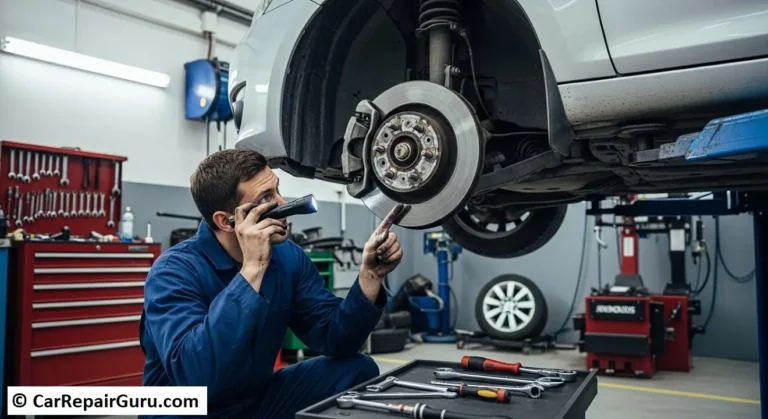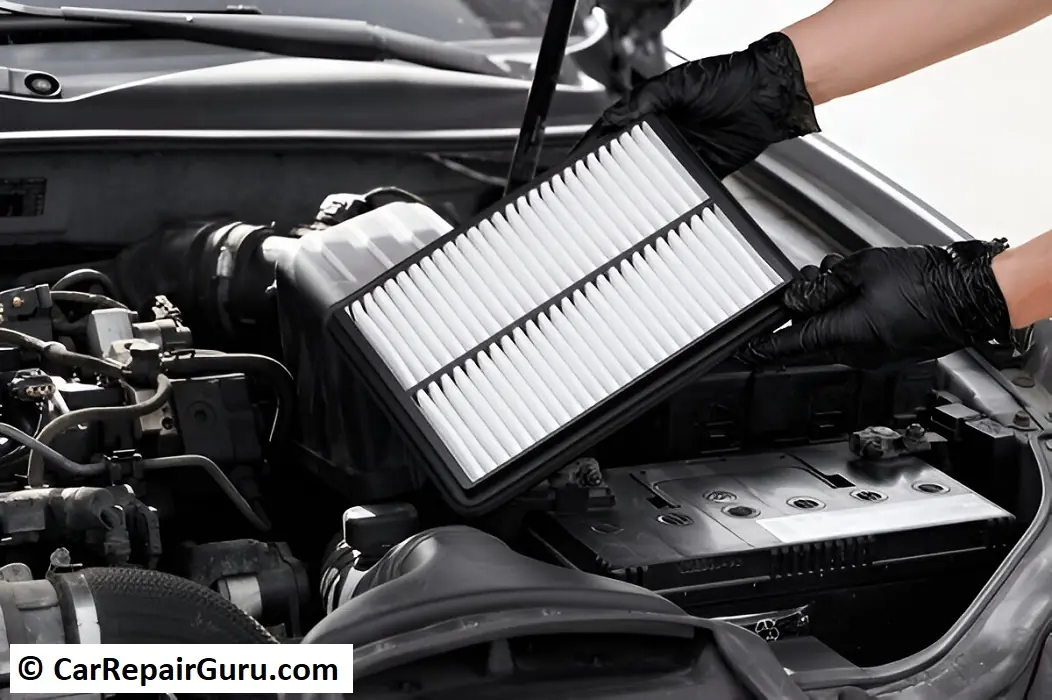
Your car’s air filter may seem like a small, simple component, but it plays a crucial role in maintaining your vehicle’s performance and engine health. Whether it’s keeping harmful dirt and debris away from your engine or ensuring your cabin air is fresh, the air filter does more than you might think. Over time, though, it can become clogged or dirty, leading to a host of issues like reduced power, lower fuel efficiency, and even engine damage.
In this guide, we’ll cover everything you need to know about your car’s air filter, from understanding how it works to knowing when and how to replace it. By staying on top of air filter maintenance, you’ll keep your vehicle running smoothly and save on costly repairs. Let’s dive in and learn why a clean air filter is essential for a healthy car!
- What Is a Car Air Filter?
- ️How a Car Air Filter Works
- Signs of a Dirty or Clogged Air Filter
- How Often Should You Change Your Car’s Air Filter?
- How to Replace a Car Air Filter (DIY Guide)
- OEM vs Aftermarket Air Filters: Which One Should You Choose?
- Benefits of Regular Air Filter Maintenance
- Conclusion
- FAQs About Car Air Filters
What Is a Car Air Filter?
Purpose of an Engine Air Filter
Let’s start with the basics: what does a car air filter do? In short, it’s your engine’s first line of defense. As your car pulls in air for combustion, the engine air filter catches all the nasty stuff—dust, dirt, pollen, debris—before it reaches your engine. Without it, tiny particles could enter and cause serious damage to the internal parts of the engine, leading to expensive repairs.
But it’s not just about protection. A clean car air filter helps maintain the right air-to-fuel ratio, which your engine needs to run efficiently. If the filter is clogged, your engine struggles to “breathe,” and that affects everything from fuel efficiency to acceleration. So, this small component plays a big role in keeping your engine healthy and your ride smooth.
️Difference Between Engine Air Filter and Cabin Air Filter
A lot of drivers don’t realize their car actually has two types of air filters: one for the engine and one for the cabin.
- The engine air filter protects the engine and helps regulate performance.
- The cabin air filter, on the other hand, filters the air that comes through your heating and air conditioning system. It keeps dust, pollutants, and even odors out of the air you breathe inside the car.
Think of it this way: engine vs cabin air filter is like lungs vs nose. One keeps your engine breathing clean air, the other keeps you breathing clean air. Both are crucial, but for very different reasons.
Regularly checking both types of air filters ensures your car runs well and your passengers stay comfortable.
️How a Car Air Filter Works
How It Protects the Engine from Dust and Debris
Your engine needs clean air to function properly. The car air filter acts like a barrier, trapping harmful particles—like dust, sand, pollen, and insects—before they can enter the engine’s intake system. Without this filter, debris can build up inside the engine and damage components such as the cylinders, pistons, and valves.
Over time, if the air filter gets too dirty or clogged, it can’t do its job effectively. That’s why routine air filter replacement is a simple but essential part of any car maintenance routine. Think of it like a face mask for your engine—it lets clean air in, but keeps the harmful stuff out.
Impact on Fuel Economy and Performance
Did you know a clogged engine air filter can make your car feel sluggish? That’s because your engine needs a steady flow of clean air to mix with fuel. When airflow is restricted, your car’s performance suffers—especially when accelerating or climbing hills.
Worse, it can affect your fuel economy. The engine compensates for the lack of oxygen by using more fuel, which means you’re burning through gas faster than you should. A clean air filter helps maintain optimal airflow, allowing your engine to run efficiently and improve gas mileage.
If you’ve noticed your car consuming more fuel than usual or struggling to respond when you hit the gas, a dirty air filter could be the culprit.
Role in Air-Fuel Mixture Balance
Your engine operates on a precise air-to-fuel ratio—typically around 14.7 parts air to 1 part fuel. This balance is crucial for combustion efficiency and engine health.
When your air filter is clean, the engine control unit (ECU) gets accurate readings from the sensors and maintains this ratio perfectly. But when the filter is clogged, it restricts airflow, leading to a “rich” fuel mixture—too much fuel and not enough air. This can cause poor mileage, increased emissions, and in some cases, even engine misfires.
In modern vehicles, sensors may try to compensate, but they can’t overcome a completely blocked filter. That’s why keeping your air filter clean ensures smoother driving, fewer emissions, and fewer trips to the mechanic.
Signs of a Dirty or Clogged Air Filter
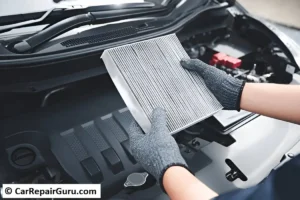
A dirty or clogged air filter doesn’t always scream for attention, but it leaves subtle signs that something’s off with your engine. Knowing what to look (and listen) for can help you catch the problem early and avoid performance issues or costly repairs.
Reduced Acceleration and Power
One of the most noticeable symptoms of a clogged car air filter is poor acceleration. If your car feels sluggish when you press the gas pedal or doesn’t respond as quickly as usual, your engine might be struggling to get enough air.
This lack of oxygen leads to incomplete combustion, reducing your engine’s ability to generate power. In simple terms, a clogged air filter makes your engine feel like it’s “choking,” especially when you’re trying to accelerate or go uphill.
Unusual Engine Sounds
When the airflow to your engine is restricted, the combustion process becomes uneven. This can result in strange engine noises—like coughing, popping, or even a rough idle when your car is stopped.
If you start noticing odd sounds that weren’t there before, especially when starting the car or idling, it might be time to check your engine air filter.
Check Engine Light
Modern vehicles rely on sensors to monitor the air-fuel mixture. If the mixture becomes too rich (too much fuel, not enough air), the system will detect a problem and illuminate the Check Engine Light on your dashboard.
While the check engine light can come on for many reasons, a dirty air filter is one of the simplest (and cheapest) fixes. If the light is on and you’re also noticing sluggish performance, checking the filter should be one of your first steps.
️Black Smoke from Exhaust
Seeing black smoke or soot coming from your tailpipe? That’s a sign your engine is burning excess fuel—often caused by poor airflow due to a clogged filter. Incomplete combustion leads to unburned fuel exiting through the exhaust system.
Not only is this bad for your car’s fuel efficiency, but it’s also harmful to the environment. Replacing the air filter can help restore proper combustion and reduce emissions.
How Often Should You Change Your Car’s Air Filter?
Knowing how often to change your car air filter is key to keeping your engine healthy and running efficiently. While it’s one of the simplest maintenance tasks, it’s also one of the most commonly overlooked.
️Recommended Mileage Intervals (e.g., every 12,000–15,000 miles)
Most manufacturers recommend replacing your car air filter every 12,000 to 15,000 miles (about 19,000 to 24,000 kilometers), or once a year, whichever comes first. However, this can vary depending on your specific vehicle, so it’s always smart to check your owner’s manual for the exact interval.
If you’re wondering, “when to replace car air filter?”—a good rule of thumb is to inspect it every 6 months or during every oil change. If it looks dark, dirty, or clogged, it’s time for a replacement.
Factors That Affect Replacement Frequency
While the mileage guideline is helpful, some conditions might require you to change the filter more frequently. These include:
- Dusty or rural environments: Driving on gravel roads or in areas with a lot of dust means your air filter gets dirty faster.
- Urban traffic: Stop-and-go driving in cities with high pollution can clog the filter more quickly.
- Allergy season or wildfire smoke: If air quality is poor, it affects both your engine air filter and cabin air filter.
- Performance cars: Vehicles that demand high airflow may need more frequent changes to maintain power.
So if you drive in harsh conditions, you might need to replace the air filter as often as every 6,000 to 10,000 miles.
Being proactive not only protects your engine—it can also save you money on fuel and repairs in the long run.
How to Replace a Car Air Filter (DIY Guide)
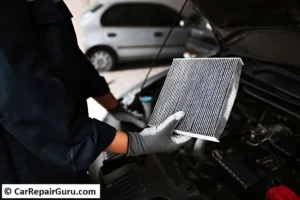
Replacing your car air filter is one of the easiest and most cost-effective maintenance tasks you can do yourself. With just a few tools and a few minutes, you can help improve your car’s performance, fuel economy, and engine life.
Tools Needed
You don’t need a garage full of tools for this job. Here’s what you’ll typically need:
- A new engine air filter (check your vehicle’s manual for the correct size and type)
- Screwdriver (usually flathead or Phillips, depending on your airbox design)
- Gloves (optional, but useful for keeping your hands clean)
- Shop rag or vacuum (optional for cleaning the airbox)
Step-by-Step Replacement Instructions
- Turn off the engine and let it cool down if it’s been running.
- Locate the air filter housing. It’s usually a black plastic box near the engine, often connected to a large intake hose.
- Open the airbox. Most are secured with clips or screws. Use a screwdriver if needed.
- Remove the old air filter. Take note of how it’s positioned so you install the new one correctly.
- Inspect the airbox. Wipe out any dirt or debris with a clean rag or vacuum it out gently.
- Insert the new air filter. Make sure it fits snugly and in the same direction as the old one.
- Close the airbox and re-secure the screws or clips.
That’s it! No need for a mechanic—this DIY task usually takes less than 10 minutes.
⚠️ Safety Tips
- Always make sure your engine is off and cool before starting any maintenance.
- Use the correct replacement filter for your specific make and model—an improper fit can lead to poor filtration or airflow issues.
- Avoid over-tightening screws or clips when closing the airbox, as it could damage the housing.
OEM vs Aftermarket Air Filters: Which One Should You Choose?
When it’s time to replace your car air filter, you’ll likely face a common dilemma: stick with the OEM (Original Equipment Manufacturer) part or go with an aftermarket alternative. Both options have their benefits—what matters most is choosing what suits your needs, budget, and driving habits.
✅ Pros and Cons of Each Type
OEM Air Filters:
- ✅ Pros:
- Guaranteed fit and compatibility with your vehicle.
- Backed by your car’s manufacturer, ensuring consistent quality.
- Maintains your vehicle’s warranty (in some cases).
- ❌ Cons:
- Usually more expensive than aftermarket options.
- Limited in availability—often only sold at dealerships or specialized retailers.
Aftermarket Air Filters:
- ✅ Pros:
- Wide variety of brands and performance levels.
- Often more affordable.
- Some high-performance filters offer increased airflow and better filtration.
- ❌ Cons:
- Quality can vary widely between brands.
- May not always fit perfectly or meet original specs.
- Some high-flow filters require oiling and extra maintenance.
If you’re focused on performance or cost savings, aftermarket filters might be a smart choice—but always buy from trusted brands.
Cost Comparison
- OEM air filters typically cost between $15–$40, depending on the vehicle.
- Aftermarket filters can range from $10 to $60 or more—basic ones being cheaper, while performance filters (like K&N or AEM) are on the higher end.
While aftermarket filters can save you money upfront, some premium brands market themselves as reusable or long-lasting, meaning you may spend more now but less over time.
Long-Term Performance
If you’re looking for consistent, worry-free protection for everyday driving, OEM filters are reliable and easy to replace. They’re designed to meet factory specifications and offer balanced performance and filtration.
However, if you want to boost performance, a high-flow aftermarket air filter may provide better airflow, slightly improving acceleration and throttle response—especially on older or tuned engines. Just keep in mind, these may let in more particles than standard filters and often require maintenance (cleaning and oiling).
For most drivers, replacing a disposable filter regularly is more effective than investing in a performance one and forgetting to maintain it.
Benefits of Regular Air Filter Maintenance
Staying on top of car air filter maintenance isn’t just good practice—it’s essential for the health of your vehicle and even the comfort of your passengers. Whether it’s the engine air filter or the cabin air filter, replacing them regularly comes with several long-term benefits.
Better Engine Health
A clean engine air filter keeps harmful dust, dirt, and debris out of your engine. Over time, those contaminants can cause wear and tear on internal components, reduce engine efficiency, and even lead to costly damage.
By simply changing your air filter on schedule, you help your engine “breathe” better. This leads to smoother operation, less strain on components, and a longer engine life. Think of it as giving your engine fresh air to perform at its best—every time you start the car.
Improved Fuel Efficiency
When your engine gets clean, unrestricted airflow, it doesn’t have to work as hard to maintain the proper air-fuel mixture. That means better fuel combustion, smoother acceleration, and more miles per gallon.
On the flip side, a clogged filter can lead to a rich fuel mixture—burning more gas than necessary. Regular filter changes can improve your fuel economy by as much as 10%, according to the U.S. Department of Energy. So, a clean filter isn’t just good for your engine—it’s good for your wallet.
Enhanced Air Quality (for Cabin Filters)
Let’s not forget about cabin air filters, which directly affect the air you breathe inside the vehicle. These filters trap allergens, dust, pollution, and even unpleasant odors before they enter your car’s interior.
If you or your passengers suffer from allergies or respiratory issues, a clean cabin air filter can make a big difference. Replacing it regularly means better in-cabin air quality, especially during pollen season or in urban environments with high pollution levels.
Conclusion
Your car air filter may be small, but it plays a big role in your vehicle’s overall health and performance. From protecting your engine to improving fuel economy and ensuring clean air in your cabin, this simple component works hard behind the scenes.
Here’s a quick recap:
- A clean air filter helps your engine run smoothly and prevents harmful debris from causing damage.
- Replacing a dirty filter can boost acceleration, fuel efficiency, and overall engine performance.
- It’s a quick, low-cost maintenance task you can often do yourself in just a few minutes.
- Whether you choose OEM or aftermarket, the key is consistency—especially if you drive in dusty or high-traffic areas.
- Don’t forget about your cabin air filter for a healthier, more comfortable ride.
✅ Routine maintenance = fewer repairs + better driving experience.
FAQs About Car Air Filters
What happens if I don’t change my air filter?
It gets clogged, reducing engine performance and potentially causing long-term damage.
Can a dirty air filter affect fuel economy?
Yes, it restricts airflow and makes the engine burn more fuel.
Are reusable air filters worth it?
They can be if cleaned regularly—great for long-term savings and performance.
Can I clean my air filter instead of replacing it?
Only if it’s a reusable type. Standard filters should be replaced, not cleaned.
How do I know which air filter fits my car?
Check your owner’s manual or use an online parts lookup with your car’s info.
